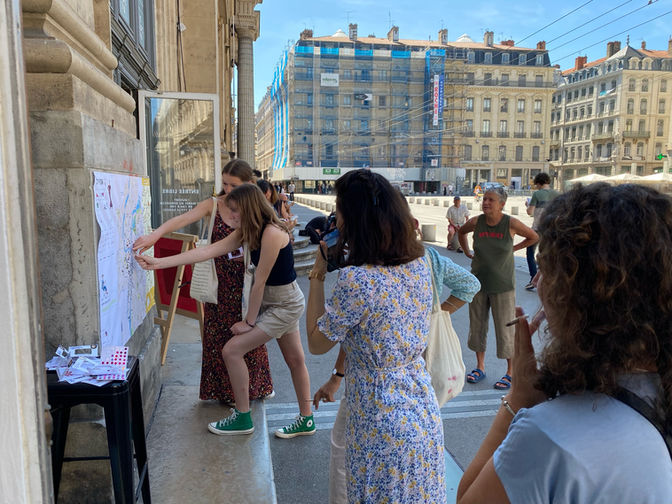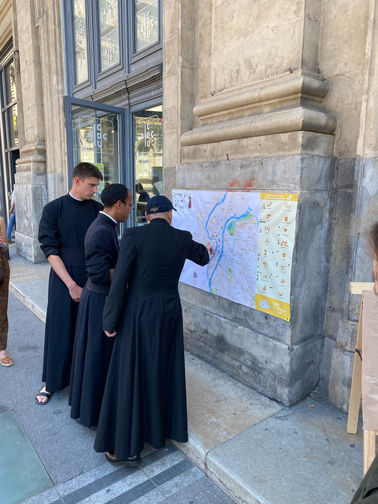Projects
City for All?
Jaipur - Chandigarh - Ahmedabad - Pune - Bangalore - Delhi >> Lyon
2022
How can we make our cities inclusive for all genders and sexualities, regardless of age, abilities, class, caste, religion or economic background, is what the Indo-French public art project 'City for All?' asked
‘City for All’ was a public art festival held over March-June 2022 as part of the Indo-French festival Bonjour India to question and discuss the role of gender in shaping public spaces and urban experiences. Over June 2022, it also traveled to the French city of Lyon to create a cross-cultural dialogue across borders.
Designed by Social Design Collaborative and Genre et Ville, it was organized by the French Institute in India and the Alliance Francaise network to travel across 6 Indian cities - Jaipur, Chandigarh, Ahmedabad, Pune, Bengaluru and Delhi - engaging online and on-ground with diverse communities, asking the question - who builds our cities and for whom?
The project involved on-street engagement across diverse neighborhoods cutting across class, caste, economic background and religion. Over a week in each city, the studio team visited 6 identified neighborhoods with the support of local partners and students, carrying a map of the city to ask the residents a very simple question - ‘Where do you like to go in your city?’. Different colored bindis for different genders were used for voting, being readily accessible and affordable. From school walls to parks to temples or mosques, the maps were pinned up at public spaces within each neighborhood. Over a few hours, passersby began to mark their favorite spots in the city where they feel comfortable and like to go again and again, either with their friends and family or by themselves. Every city map also included a ballot chart to ask people to vote for what is important to them in a public space - greenery or safety or a sense of freedom etc. Through these neighborhood level discussions, what started emerging were city level patterns of how people from diverse backgrounds navigate in their city and what are the most inclusive spaces that work for all.
The maps and week-long discussions were shared at a public exhibition on the weekends at a central and open-to-all public venue in each city. By placemaking, everyday public spaces such as an underpass (in Chandigarh), a pavement (in Pune), a chowk (in Ahmedabad), the space under a metro line (in Bangalore) and courtyards of cultural spaces (Delhi, Jaipur) were transformed intro vibrant public festival places where people from all walks of life came together to participate in the discourse generated by the project as well as cultural performances and artwork put up by local artists.

An integral approach of the project was not just on-street neighbourhood discussions and public interactions but also connecting to policy and governance to mainstream the discourse on gender and sexuality. Public officials were invited to each exhibition’s opening event from the Chief Secretary of Rajasthan who spoke about the the need for functional toilets for women to the local Corporator of Pune who spoke on the need for facilities for transgender people. A discussion on the need for integrating information on transgender persons in the school syllabus was discussed with the Education Minister of Gujarat, helping pave the way for long-term change. Over 3 months, the travelling project engaged on-ground with over 5000 people from diverse backgrounds, with over 100 local and university partners across the 6 cities. The online engagement through social media platforms helped reach out to thousands across India and France.
Next, the Indo-French collaboration traveled to the French city of Lyon over June-July 2022 to build further on the public dialogue, so that Indian and French cities may learn from each other and come up with collective solutions. Invited by the mayor of the 1er arrondissement of Lyon, the project interacted with the residents of Lyon at the popular public space Place des Terreaux.


































